Could the UK follow the US into a war with Iran?
Iranian missile strike hits Iraqi military bases housing US and British personnel
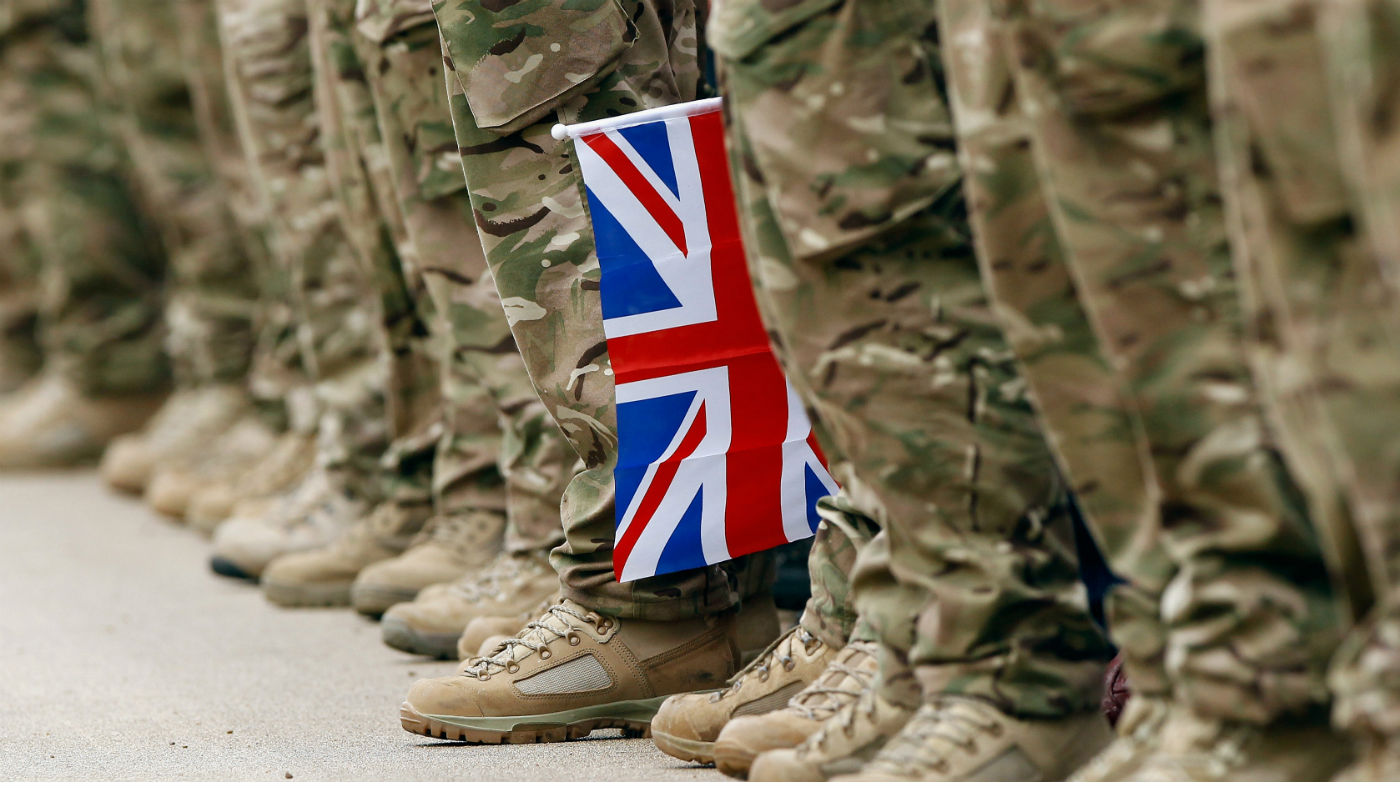
A free daily email with the biggest news stories of the day – and the best features from TheWeek.com
You are now subscribed
Your newsletter sign-up was successful
Iran has fired more than a dozen ballistic missiles at Iraqi military bases housing American and British forces as tensions escalate following the assassination of General Qasem Soleimani last week.
Tehran is demanding the withdrawal of US troops from the region and has warned that any further aggression against Iran “will be met with a more painful and crushing response”.
Iranian state television has claimed that 80 “American terrorists” were killed or injured during the attack, at 1.30am local time (0.30pm GMT) on Wednesday, reports The Independent. But both US and Iraqi officials insist there were no casualties.
The Week
Escape your echo chamber. Get the facts behind the news, plus analysis from multiple perspectives.

Sign up for The Week's Free Newsletters
From our morning news briefing to a weekly Good News Newsletter, get the best of The Week delivered directly to your inbox.
From our morning news briefing to a weekly Good News Newsletter, get the best of The Week delivered directly to your inbox.
The targeted military bases, in Irbil and Al Asad, west of Baghdad, are believed to also host UK personnel. The Foreign and Commonwealth Office told the BBC: “We are urgently working to establish the facts on the ground. Our first priority is the security of British personnel.”
What has the UK said?
Foreign Secretary Dominic Raab has said that the UK “condemn[s] this attack on Iraqi military bases hosting Coalition – including British – forces”.
“We are concerned by reports of casualties and use of ballistic missiles,” he said in a statement. “We urge Iran not to repeat these reckless and dangerous attacks, and instead to pursue urgent de-escalation.”
A free daily email with the biggest news stories of the day – and the best features from TheWeek.com
Meanwhile, Metropolitan Police Commissioner Dame Cressida Dick said that the head of UK counterterror policing, Neil Basu, had been in discussions with security agencies and government agencies about how the UK might be affected by the crisis.
“We’re extremely alert to what this could possibly lead to [in London], but it’s a very complex situation,” said Dick. “We are very, very adept at seeing what’s happening around the world, reaching out into communities and looking at the possible threats and risks that might come. That's what we're doing on a day by day basis, and in response to this.”
Prior to the Iranian missile strikes, Prime Minister Boris Johnson said that General Soleimani had played a “leading role [in] the deaths of thousands of innocent civilians and Western personnel”, adding: “We will not lament his death”.
Around 400 British troops are stationed in Iraq, where Soleimani was killed. Amid fears of further reprisal attacks, HMS Montrose and HMS Defender are set to accompany UK-flagged ships through the Strait of Hormuz in the Gulf, where a tanker was seized by Iran last July, reports the BBC.
How has Iran responded?
Following the retaliation strikes, Iran’s Foreign Minister Mohammad Javad Zarif said: “We do not seek escalation or war, but will defend ourselves against any aggression.”
Iranian Supreme Leader Ayatollah Ali Khamenei has described the missile strikes as a “slap in the face” for the US, and is demanding that Washington withdraw its troops from the region.
President Hassan Rouhani added that the US may have “cut off Soleimani’s arm”, but Iran would respond by “cutting off your leg”.
Who opposed the Soleimani assassination?
Opposition leader Jeremy Corbyn has called the killing “an extremely serious and dangerous escalation of conflict”.
The Labour boss later tweeted that the strike was “reckless and lawless” and said that Johnson’s sympathy for the action was “craven and dangerous”.
Echoing that view, Labour leadership candidate Keir Starmer accused Johnson and Raab of “blindly following the Americans”, adding: “We have done this before and it is the wrong place to go.”
Speaking on the BBC’s The Andrew Marr Show, Starmer added that he would support legislation that ensured military action could only be taken if a lawful case for it had been made and a viable objective given, and if the Government had the consent of the House of Commons.
Shadow foreign secretary Emily Thornberry told Sky News that the crisis was “a major lurch towards war” and warned that British interests in the region are “now vulnerable”.
What is the precedent for US-UK military intervention?
The UK has a history of following the US into conflict. In 2003, the UK joined a US-led invasion of Iraq with the primary goals of finding weapons of mass destruction and deposing Saddam Hussein.
Then-PM Tony Blair later admitted the invasion had been based on unchallenged and flawed intelligence. Following the publication of the highly critical Chilcot Inquiry, Blair released a statement acknowledging those failings with “more sorrow, regret and apology and in greater measure than you can know or may believe”.
The UK also joined an international coalition that supported US military action after Washington in 2001 ordered bombing attacks on Afghanistan - notionally in response to the 9/11 terror attacks.
A total of 454 British forces personnel or government civilians were killed in Afghanistan. During the Iraq campaign, 179 British service personnel and three UK government civilian staff lost their lives.
-
 How the FCC’s ‘equal time’ rule works
How the FCC’s ‘equal time’ rule worksIn the Spotlight The law is at the heart of the Colbert-CBS conflict
-
 What is the endgame in the DHS shutdown?
What is the endgame in the DHS shutdown?Today’s Big Question Democrats want to rein in ICE’s immigration crackdown
-
 ‘Poor time management isn’t just an inconvenience’
‘Poor time management isn’t just an inconvenience’Instant Opinion Opinion, comment and editorials of the day
-
 Is conscription the answer to Europe’s security woes?
Is conscription the answer to Europe’s security woes?Today's Big Question How best to boost troop numbers to deal with Russian threat is ‘prompting fierce and soul-searching debates’
-
 How long can Nato keep Donald Trump happy?
How long can Nato keep Donald Trump happy?Today's Big Question Military alliance pulls out all the stops to woo US president on his peacemaker victory lap
-
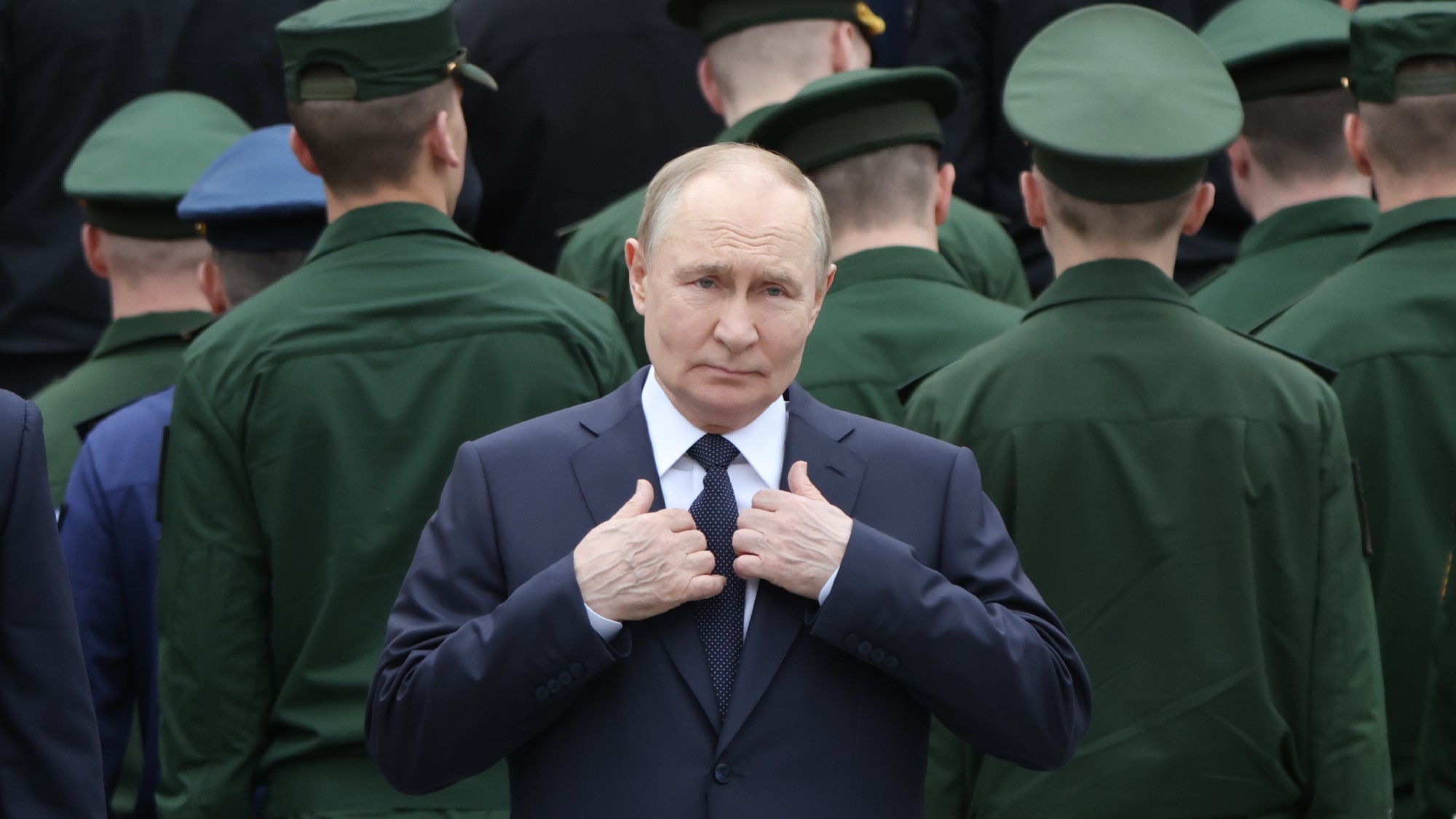 How far would Russia go for Iran?
How far would Russia go for Iran?Today's Big Question US air strikes represent an 'embarrassment, provocation and opportunity' all rolled into one for Vladimir Putin
-
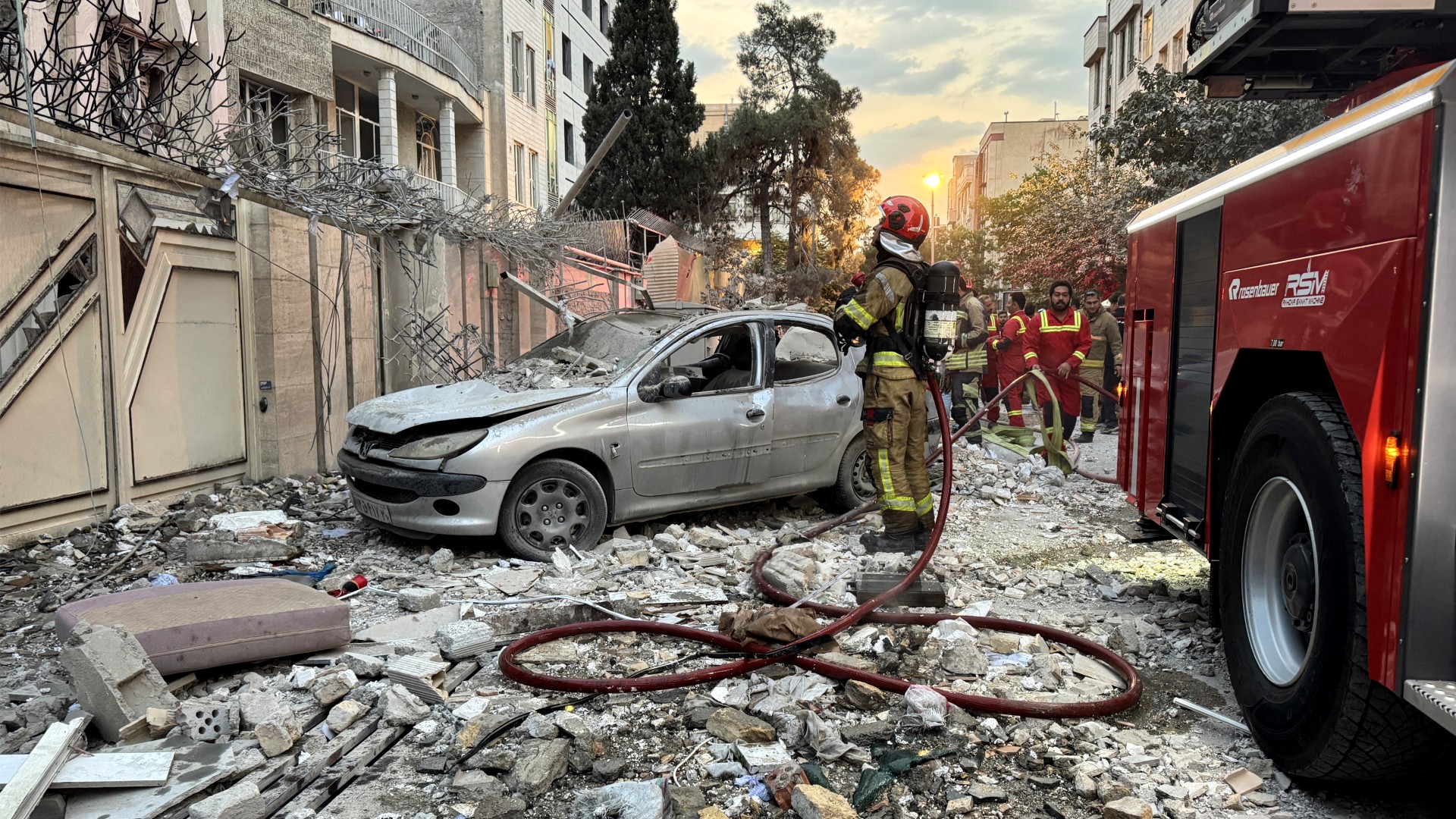 How the Israel-Iran conflict broke out
How the Israel-Iran conflict broke outThe Explainer Israel's strike on Iran's nuclear and missile programmes was years in the planning
-
 Will the UK get involved in the Israel-Iran conflict?
Will the UK get involved in the Israel-Iran conflict?Today's Big Question Keir Starmer is 'walking a tightrope' in helping Israel limit Tehran's nuclear capabilities without being seen to do so
-
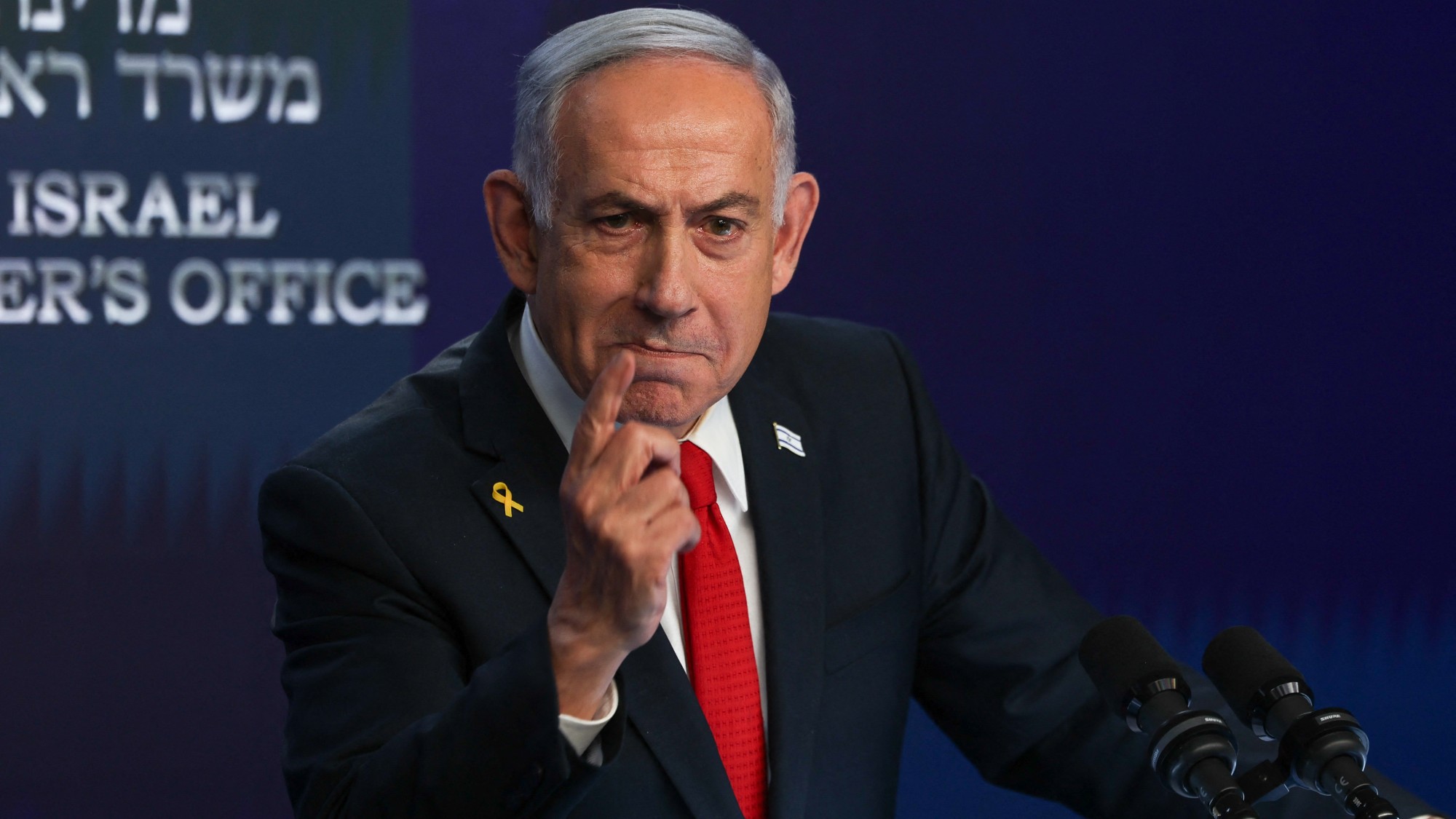 What happens if Israel attacks Iran?
What happens if Israel attacks Iran?TODAY'S BIG QUESTION Israel is 'ready to strike' and Tehran has plans for counterattacks against the US as nuclear talks appear deadlocked
-
 Is UK's new defence plan transformational or too little, too late?
Is UK's new defence plan transformational or too little, too late?Today's Big Question Labour's 10-year strategy 'an exercise in tightly bounded ambition' already 'overshadowed by a row over money'
-
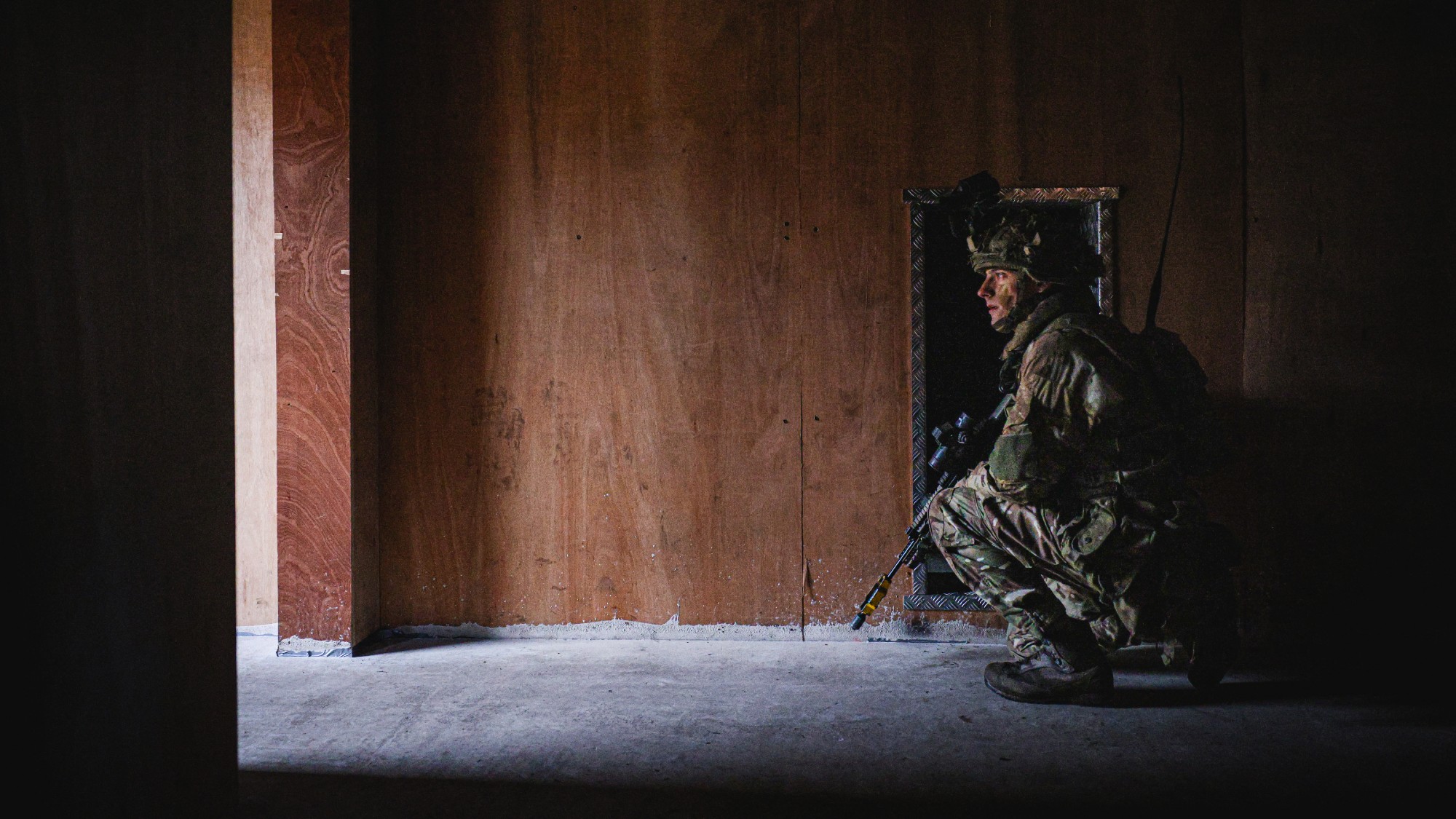 The state of Britain's Armed Forces
The state of Britain's Armed ForcesThe Explainer Geopolitical unrest and the unreliability of the Trump administration have led to a frantic re-evaluation of the UK's military capabilities